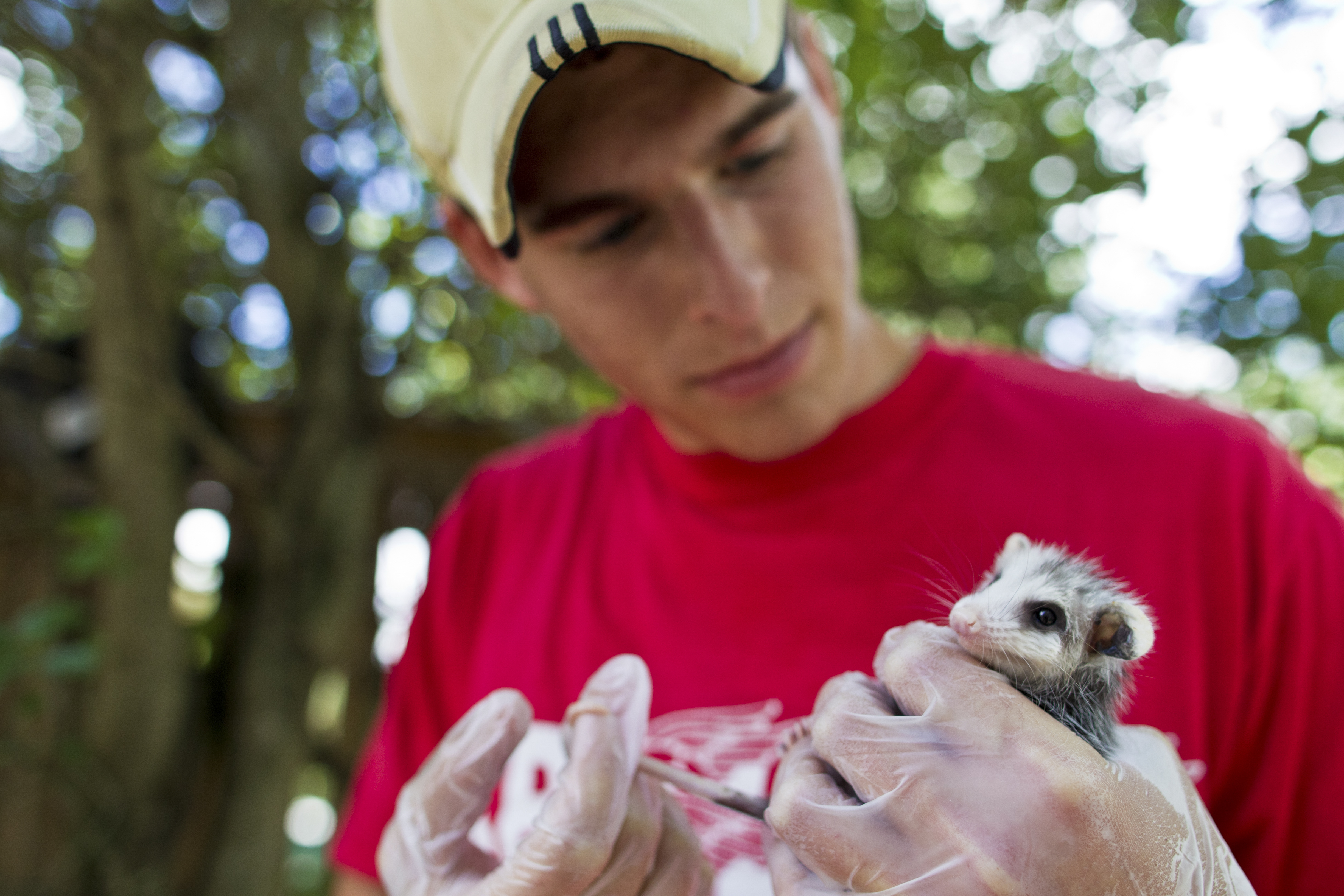Animal Research Exposure

The National Institutes of Health (NIH) require that each university receiving federal support for research involving vertebrate animals have a Medical Monitoring Program for personnel with
animal contact. Following the guidelines of the NIH and the National Research Council (NRC) publication, Occupational Health, and Safety in the Care and Use of Research Animals, the
University of Central Florida (UCF) has developed the Animal Exposure Program (AEP).
Program requirements are based upon those outlined in the Public Health Services document, Guide for the Care and Use of Laboratory Animals and, as well as the recommendations of the Association for Assessment and Accreditation of Laboratory Animal Care (AAALAC). The Division of Environmental Health and Safety (EHS) oversees the Animal Exposure Program. Centra Care is the medical provider for the program and maintains the medical records.
Who should enroll?
Tier I Personnel:
- All faculty, staff, students, and researchers performing research that involves exposure to vertebrate animals.
- All staff and students that may be exposed to animals in laboratories, animal facilities, and field research are required to enroll.
- Anyone handling unfixed animal tissues or body fluids, including animal waste.
- Anyone listed on an Institutional Animal Care and Use Committee (IACUC) protocol.
- Anyone that is exposed to animals in the laboratory, including those individuals not handling animals.
- Anyone who accesses animal facilities (vivarium).
- Anyone working in Animal Biosafety Level 3 areas.
Requirements:
- Medical Questionnaire
- Personnel complete and sign the Medical Questionnaire and authorization form and then submit it directly to the Occupational Health Physician at Centra Care via encrypted email to cc.onsitefax@AdventHealth.com. To obtain instructions on how to send encrypted documents, please visit Animal Exposure Webpage and contact Melina Kinsey at 407-823-1526 to obtain the password to the encrypted document. The Occupational Health Physician will review the Medical Questionnaire and provide an Occupational Health Clearance Form. In the event the Physician is requiring further examination, immunization, testing, and/or evaluation, employees will be asked to go to make an appointment with Centra Care for further evaluation. Employees will be paid for the time required for the appointment(s) and reasonable travel to and from the appointment.Note: For field research faculty, the Field Research Safety Plan will also need to be completed and signed by the appropriate Department Chair.
- EHS 180 online training: Animal Exposure in a Research Setting (every 3 years) available at the EHSA log-in site.
EHS verifies that all personnel listed on new and continuing animal use protocols are included in
AEP.
It is the responsibility of the Principal Investigator to ensure that all individuals listed on their IACUC protocol or working under their supervision participate in the program, including
employees, students, colleagues, collaborators, and volunteers that will be exposed. Enrollees shall not incur any costs or fees as part of their enrollment in AEP. This requirement must be
addressed. Failure to enroll in AEP may result in the delay of approval for new or renewal protocol submissions as well as significant changes to existing protocols. If the Committee determines
that an individual working in an animal research area is not enrolled in AEP, the protocol or individuals may be suspended from animal work until such time as enrollment has been
completed.
Tier II: No Medical Questionnaire Required:
Visitors entering animal facilities or vivarium to perform maintenance/repairs or observe research are not required to participate in the Animal Exposure Program provided all the
following are met:
- Visits are 5 days or less within a 30-day period
- Additional requirements which may be required according to facility rules and Standard Operating Procedures
Requirements:
- Read the Animal Exposure Program
- Complete the Animal Exposure in a Research Setting online training (every 3 years)
- Be advised that some persons are at increased risk from animal-associated disease:
- Women who are pregnant or planning to become pregnant
- Immune compromised persons
- Individuals with known animal allergies should contact the Occupational Physician
FAQs
Animal Exposure Program Resources
Animal Exposure Program Manual
Animal Exposure Program Enrollment Packet
EHS 004-22 AEP Police Memo
EHS 005-22 AEP Facilities Memo
How to Encrypt a PDF Document With Password
Field Research Safety Plan
Frequently Asked Questions
Animal Exposure Plan Contacts
Melina Kinsey
Biosafety Officer
Melina.Kinsey@ucf.edu
(407) 823-1526